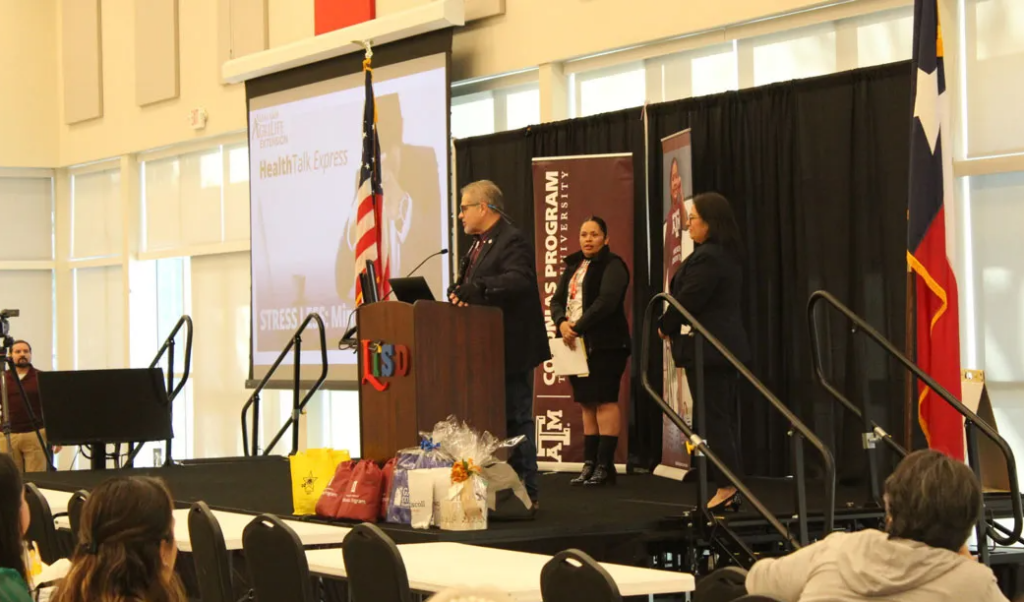
Department of
Nutrition

5 Degree Programs
We have five degree programs to provide our students with a world-class education they can apply to careers as registered dietitians or biomedical researchers, as well as preparation for health profession schools. Additional career paths include pharmaceutical sales reps, food safety inspectors, and more.

2 Accredited Programs
Our ACEND-accredited Didactic Program in Dietetics and Master of Clinical Nutrition / Dietetic Internship programs prepare students to become Registered Dietitians.

500+ Enrolled Students
Our over 500 enrolled students are training to be the next generation of nutrition professionals who recognize the importance in maintaining health and preventing diseases.
Nutrition News

Life sciences doctoral programs highlighted at Texas A&M symposium
Introduces Ph.D., graduate candidates to life science programs, student benefits, more

South Texas event brings needed health information, resources to the region
Nutrition’s Jenna Anding, PhD, professor and AgriLife Extension specialist, spoke at Your Health Matters! Wellness Conference at Laredo Independent School District.
Department Updates
-

Nutrition Ambassador Applications Due April 21
The Department of Nutrition’s Ambassador Program (DNAP) is now accepting applications for the 2024-2025 school…
Have Questions?
For degrees or admissions questions:
For general questions: